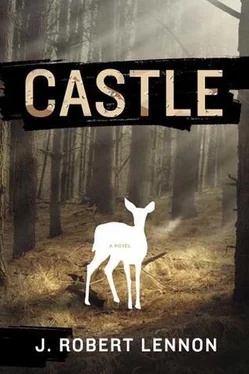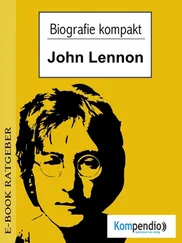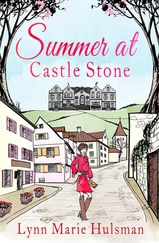The boy sat across from me, occupying the only chair other than my own. He was very thin, and slightly stooped, like a grandfather; his unlined face was dark and inscrutable, and the beginning of a mustache stained his upper lip. He was no longer wearing his dishdasha; at some point he had been given jeans and a golf shirt, and these now hung from him like pieces of mold that had grown there, and their reek filled the room. Nobody appeared to be bothered; we were all accustomed to this odor, and at times exuded it ourselves. Geary, the translator, leaned listlessly against the wall to my right; the two soldiers who had brought the boy flanked the door, their rifles at the ready. Geary looked terrible — his eyes hollow, his lips cracked, his hair lank. He was now the only translator. The other had been transferred abruptly, and his replacement never arrived.
“Ask him,” I said, gazing at the boy, “his father’s name.”
Geary blinked and turned to the boy in slow motion. He spoke with lethargic ease, as though he were drunk.
The boy blinked as well, as if in response. Then he tilted back his head, cleared his throat, and began to whistle.
Here in the confines of my office, the mournful sound of Sufian’s tuneless whistle came as a terrible shock. It was him — he was the whistler! I had not been aware of how completely this sound had infected my waking hours; it seemed a permanent, obscure, and distant motif, a kind of haunting. My body tensed, and my hands found the edge of my desk and gripped it.
The two soldiers shifted their weight from one foot to the other. Geary let out a long, terrible sigh. I removed a handkerchief from my pocket and wiped my forehead. I said, “Ask him again.”
“He won’t say anything.” Geary had long ago stopped calling me sir, and I had stopped caring.
I shrugged.
Geary asked again, and the boy merely continued to whistle.
Every one of my muscles was clenched now. The boy’s cheerless passivity was maddening. Didn’t I deserve at least some acknowledgment of my efforts to protect him from harm? Wasn’t it clear to him that he had been favored, and that this favoritism had a source? The least he could do was answer my very simple question — or even refuse to answer it. Anything but this — this whistling, which felt as though it was boring into my head like an auger. It occurred to me that the melody, if you could call it that, never seemed to repeat itself, never seemed to break into any particular theme or phrase; and yet I could have recognized it anywhere: it had an identity, a personality. For all that, it resisted understanding. It was foreign, far more foreign than this place. It was alien.
Through gritted teeth, I asked several more questions — who his father’s friends were, what cafés he frequented, what mosque he worshipped at. The boy Sufian paused after each, then displayed a small, grim smile, and resumed his whistling. I don’t know what purpose the whistling served — whether it meant something to him, whether it was a comfort, or a weapon, or simply a way of passing the time. I only know that I felt deeply, painfully tired of it.
At this point I gave up, and ordered everyone but Sufian out of the room.
The specifics of what happened next would be difficult to relate, even if I was able to remember them clearly. Much has been said about the “fog of war” that clouds our judgment in times of great stress; the term could also be applied to the tendency of memory to twist and reshape itself, especially the memory of dramatic moments. What is clear to me is that I had intended to make the boy Sufian talk, regardless of the relative unimportance of anything he might say. Indeed, with the translator gone, it was unlikely that I would have been able to understand him, even had I been successful. In any event, the fact remains that the boy’s continued silence (his speechlessness, that is — I am not figuring his strange, frightening whistling into this characterization) represented a danger to the stability of the facility, the morale of the men and women under my command, and the pliability of his fellow detainees.
In addition, I am certain, and I openly admit this, that I used some degree of physical coercion in my efforts to break the boy’s silence. This would have been inevitable, given his failure to respond to verbal persuasion. And the one other certainty, as far as I can tell, is that the boy must have had some physical infirmity, perhaps the result of the violence in his neighborhood before his apprehension by U.S. troops, perhaps some congenital condition, which made him particularly susceptible to the effects of rough handling.
Whatever the case, I of course regret the outcome. But the actual end result was not, in fact, my original intention; and while no one can be blamed except myself, I consider it reasonable to regard the boy as, in a larger sense, a casualty of war.
I do remember my profound exhaustion at the end of that day, and I recall taking the unusual step of returning to barracks and going to bed before it was dark. I also remember the soldiers who came to me the next day to ask me what should be done with the boy’s body.
In addition, I remember, with quite painful clarity, the faces of the men and women under my command when I gathered them together in the mess and tried to initiate a conversation about where, and how, precisely, our efforts had gone awry, and what we might do to begin to rectify our situation. Their misery and confusion were manifest in their stunned staring eyes, and when I received no reasonable comments or suggestions, I understood that my authority had finally been stretched beyond its limits and snapped. I forgave them all in that moment, for it had been my own incapacity to lead that had brought us to this juncture, and it was beyond my power to bring us out.
And now, at last, I sat at my desk, having come in from the drainage pits and thrown up, and I stared at the empty chair where the boy had sat, and I wondered what had been done with his body, and whether I had been told and forgotten, or never been told, or whether it was all just a nightmare from which I could not, however desperately I struggled to lift my head, wake up. My mind, at this juncture, was far too tired to hold on to any thought for long. I barely had the strength to take my keys from my pocket, or to insert one of them into the bottom right-hand drawer, let alone to remove from that drawer the warped and cracked wooden box that contained my father’s Enfield. But I did it: I set it on the desk before me, and lifted the creaking lid, and stared for seconds, minutes, maybe hours at the gun there.
I did not, of course, kill myself — in retrospect, I doubt the thing would have fired, so long had it been since I had cleaned or even inspected it; and I don’t believe that suicide was even my intention. Rather, I was reminiscing about my father, about our terribly flawed life together, and his sad end, when a knock came at the door, and the knob rattled, and I heard the jingle of keys. A moment later the door fell open.
They were hard and healthy, the soldiers, in contrast with my own. They were from the general, I understood, and had come for me at last. I went willingly, leaving the Enfield behind, and I never saw the gun, the facility, or any of my men again.
I was taken care of in the days and weeks leading up to the hearings. From my Washington hotel, I gazed out upon the busy lives of civilians, who had already grown weary of the war, which they thought they’d been permitted to forget, which was supposed to fade away into a memory of triumph.
The hearings themselves were of little consequence. By and large I was questioned gently, apologetically, and what few difficult questions arose, I was evidently able to answer to the satisfaction of all. When I was asked about the boy, I told them that I didn’t know how he had died. When I was asked if he had died during an interrogation, I replied that, no, he was no longer under questioning at that time. When I was asked if perhaps he had been beaten by one of his fellow prisoners — perhaps a terrorist eager to prevent his divulging vital information — I answered that such a thing was indeed a plausible explanation.
Читать дальше











